
Early research has had DNA making circuits and little factories. We haven't really seen DNA used as a storage medium, however, and it's evident we've been missing out. A Harvard team led by George Church, Sriram Kosuri and Yuan Gao can stuff 96 bits into a DNA strand by treating each base (A, C, G, T) as though it's a binary value. The genetic sequence is then synthesized by a microfluidic chip that matches up that sequence with its position in a relevant data set, even when all the DNA strands are out of order. The technique doesn't sound like much on its own, but the microscopic size amounts to a gigantic amount of information at a scale we can see: about 704TB of data fits into a cubic millimeter, or more than you'd get out of a few hundred hard drives. Caveats? The processing time is currently too slow for time-sensitive content, and cells with living DNA would destroy the strands too quickly to make them viable for anything more than just transfers. All the same, such density and a lifespan of eons could have us turning to DNA storage not just for personal backups, but for backing up humanity's collective knowledge. We're less ambitious -- we'd most like to know if we'll be buying organic hard drives alongside the fair trade coffee and locally-sourced fruit.
Continue reading Harvard stores 704TB in a gram of DNA, may have us shopping for organically-grown storage (video)
Filed under: Storage, Science
Harvard stores 704TB in a gram of DNA, may have us shopping for organically-grown storage (video) originally appeared on Engadget on Sun, 19 Aug 2012 01:06:00 EDT. Please see our terms for use of feeds.
Permalink  ExtremeTech
ExtremeTech |
 Harvard University
Harvard University |
Email this |
Comments
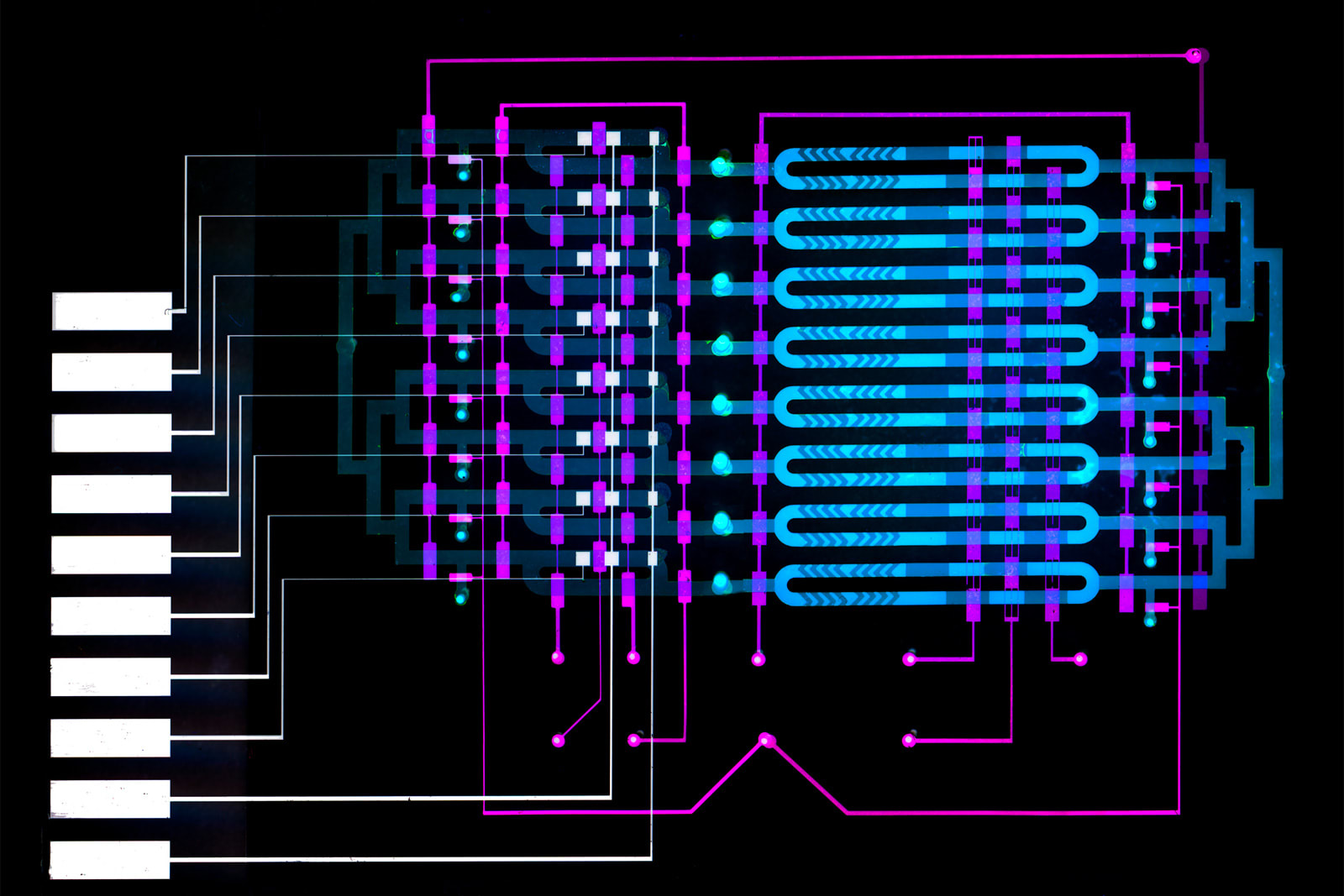 Sepsis (where your immune system starts a chain of inflammation reactions) is potentially deadly, especially if septic shock leads your organs to fail, but diagnosing that in a timely fashion is still difficult or requires an unwieldy device. Thankf...
Sepsis (where your immune system starts a chain of inflammation reactions) is potentially deadly, especially if septic shock leads your organs to fail, but diagnosing that in a timely fashion is still difficult or requires an unwieldy device. Thankf...
 Sepsis (where your immune system starts a chain of inflammation reactions) is potentially deadly, especially if septic shock leads your organs to fail, but diagnosing that in a timely fashion is still difficult or requires an unwieldy device. Thankf...
Sepsis (where your immune system starts a chain of inflammation reactions) is potentially deadly, especially if septic shock leads your organs to fail, but diagnosing that in a timely fashion is still difficult or requires an unwieldy device. Thankf...
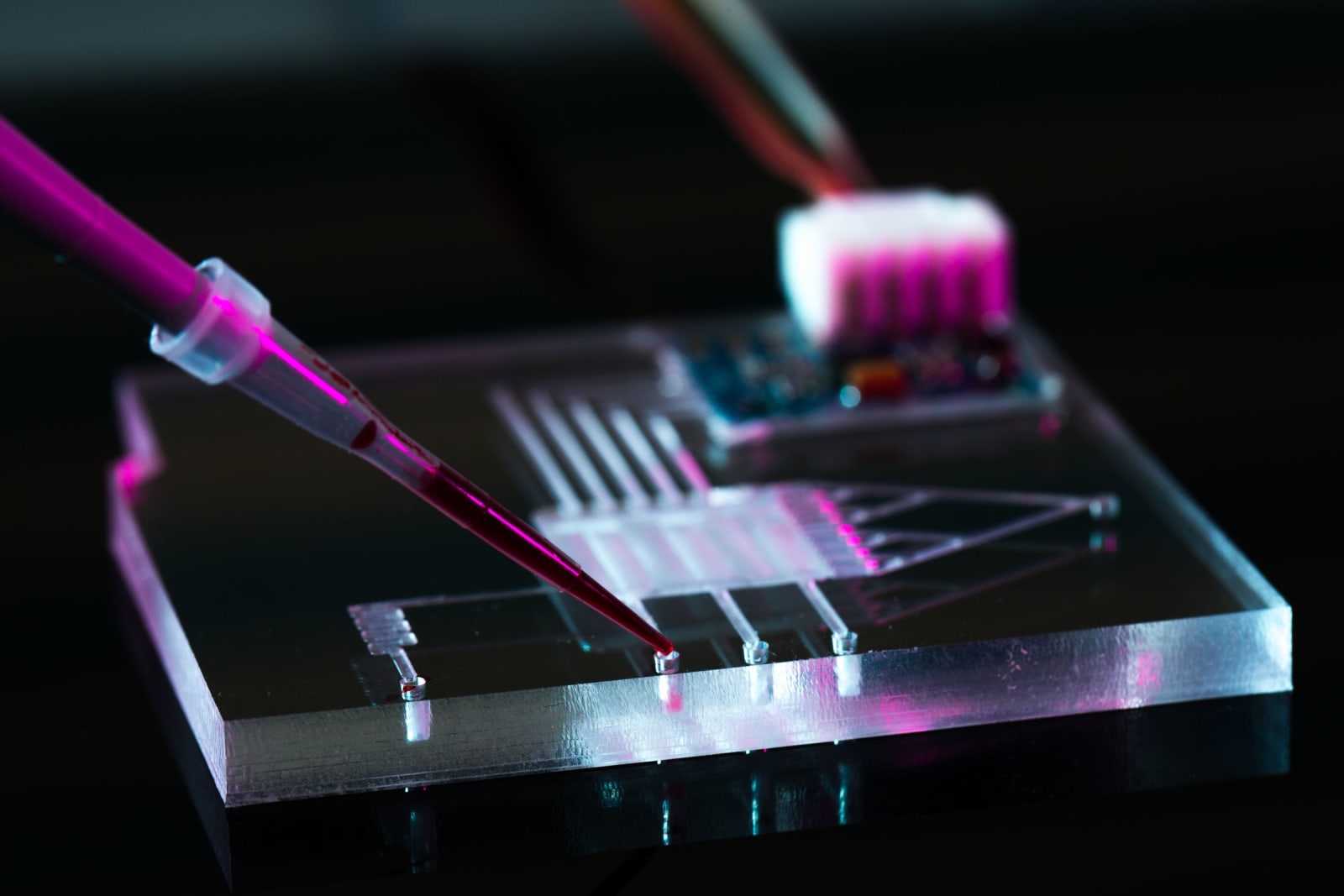 Robots might be a little more appealing -- and more practical -- if they're not made of hard, cold metal or plastic, but of a softer material. Researcher at Brown University believe they've developed a new material that could be ideal for "soft robot...
Robots might be a little more appealing -- and more practical -- if they're not made of hard, cold metal or plastic, but of a softer material. Researcher at Brown University believe they've developed a new material that could be ideal for "soft robot...
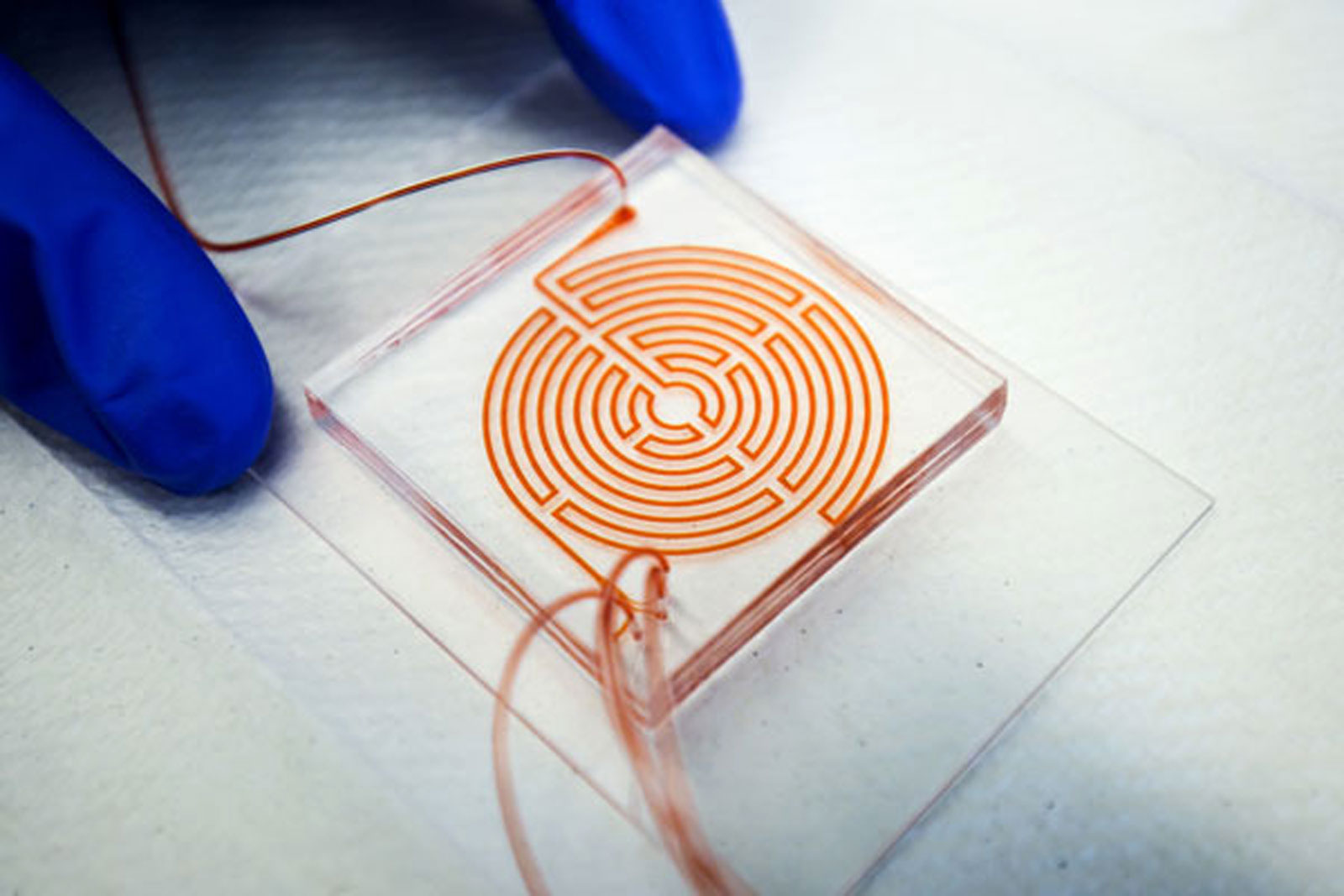 It's difficult to spot cancer cells -- just one in a billion blood cells are cancerous. How do you isolate them to know the trouble someone is facing and eventually treat it? By drawing the kind of mazes you enjoyed as a kid, apparently. Researche...
It's difficult to spot cancer cells -- just one in a billion blood cells are cancerous. How do you isolate them to know the trouble someone is facing and eventually treat it? By drawing the kind of mazes you enjoyed as a kid, apparently. Researche...
 If you're a fan of high-end watches and really want to stand out, one of your slicker options is HYT's H series. Instead of relying solely on spinning hands to tell the time, it uses a hydro-mechanical system that fills capillaries with fluid. Soun...
If you're a fan of high-end watches and really want to stand out, one of your slicker options is HYT's H series. Instead of relying solely on spinning hands to tell the time, it uses a hydro-mechanical system that fills capillaries with fluid. Soun...
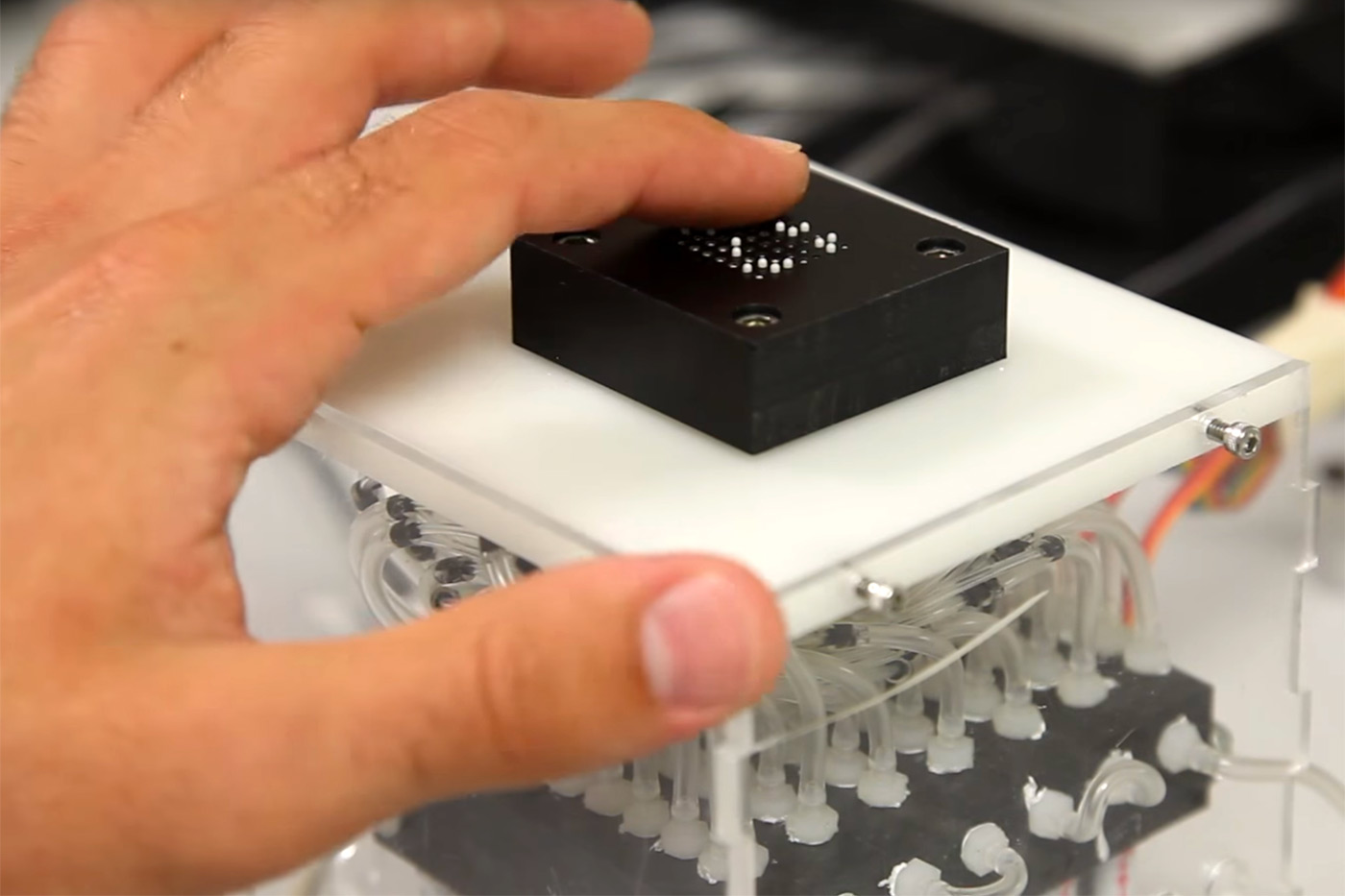 You can use voice dictation and feedback to navigate a phone or tablet if you're blind, but that doesn't really answer all your needs. What if you need to read charts or other graphics? The University of Michigan has an answer. It's developing a B...
You can use voice dictation and feedback to navigate a phone or tablet if you're blind, but that doesn't really answer all your needs. What if you need to read charts or other graphics? The University of Michigan has an answer. It's developing a B...
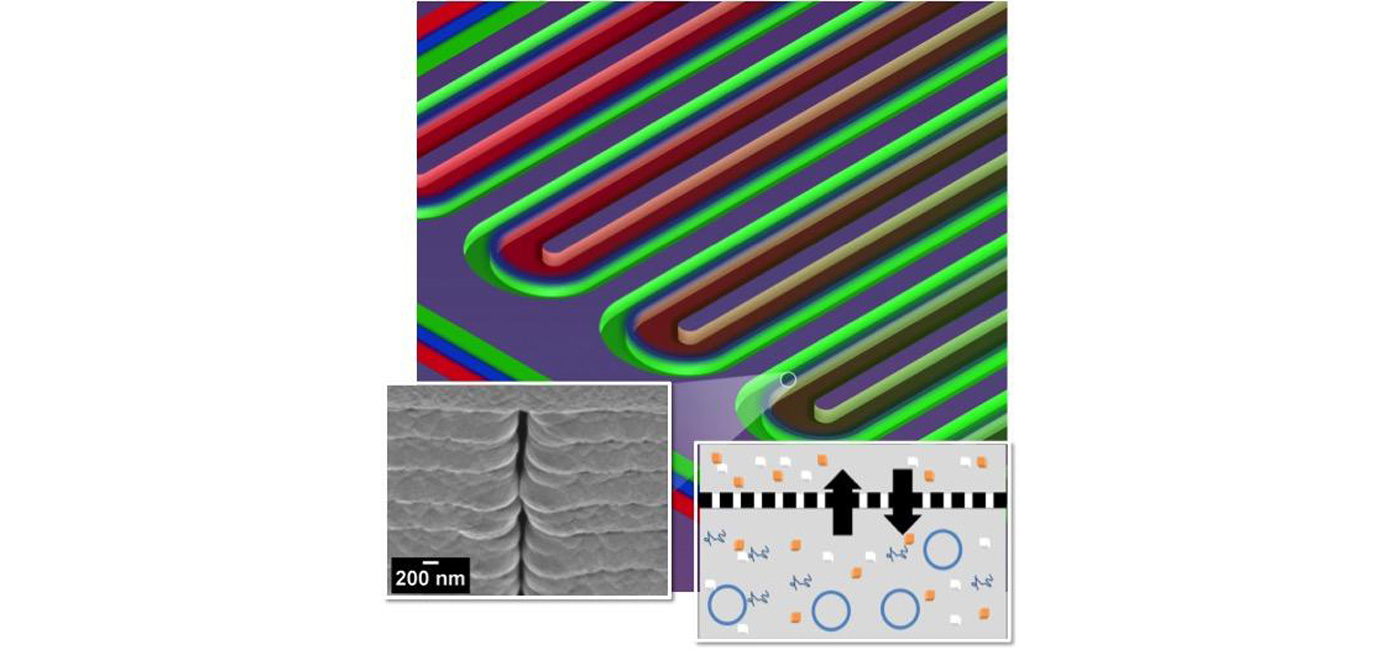 Paramedics and field medics can patch up some wounds on the spot, but they're usually stuck if they have to administer specialized drugs. What if you need medicine that health care workers don't have on hand? You might not have to rush back to the ho...
Paramedics and field medics can patch up some wounds on the spot, but they're usually stuck if they have to administer specialized drugs. What if you need medicine that health care workers don't have on hand? You might not have to rush back to the ho...




